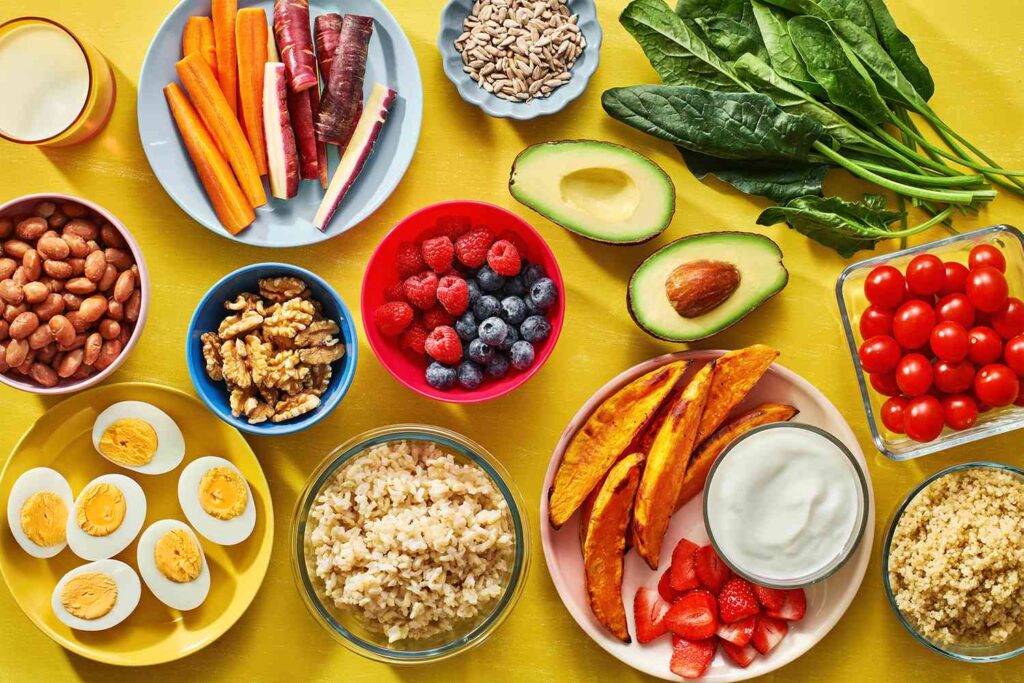<script async src="https://pagead2.googlesyndication.com/pagead/js/adsbygoogle.js?client=ca-pub-6514684778874346"
crossorigin="anonymous"></script>
Healthy foods are those that provide your body with essential nutrients like vitamins, minerals, fiber, and protein, without excessive amounts of unhealthy fats, sugars, or sodium. Incorporating these foods into your diet can help you maintain a healthy weight, reduce the risk of chronic diseases, and improve your overall well-being.

Key Food Groups:
- Fruits and Vegetables: These are packed with vitamins, minerals, fiber, and antioxidants. Aim for at least 5 servings per day.
- Whole Grains: Choose whole grains over refined grains as they contain more fiber and nutrients. Examples include brown rice, whole wheat bread, and quinoa.
- Lean Proteins: Opt for lean sources of protein like poultry, fish, beans, lentils, and tofu.
- Dairy or Dairy Alternatives: Consume low-fat or fat-free dairy products or plant-based alternatives for calcium and vitamin D.
- Healthy Fats: Include healthy fats like avocados, nuts, seeds, and olive oil in moderation.
Tips for Healthy Eating:
- Read food labels: Pay attention to ingredients, serving sizes, and nutritional information.
- Cook at home: Prepare meals with fresh ingredients to control portion sizes and avoid unhealthy additives.
- Limit processed foods: Reduce your intake of processed foods, which are often high in unhealthy fats, sugars, and sodium.
- Stay hydrated: Drink plenty of water throughout the day.
- Listen to your body: Pay attention to hunger and fullness cues.
Example of a Healthy Meal:
- Breakfast: Oatmeal with berries and nuts
- Lunch: Salad with grilled chicken and a side of whole-grain bread
- Dinner: Salmon with roasted vegetables and brown rice
Remember, a balanced diet is key to good health. Consult with a healthcare professional or registered dietitian for personalized advice.
Would you like to know more about specific foods or meal planning?




